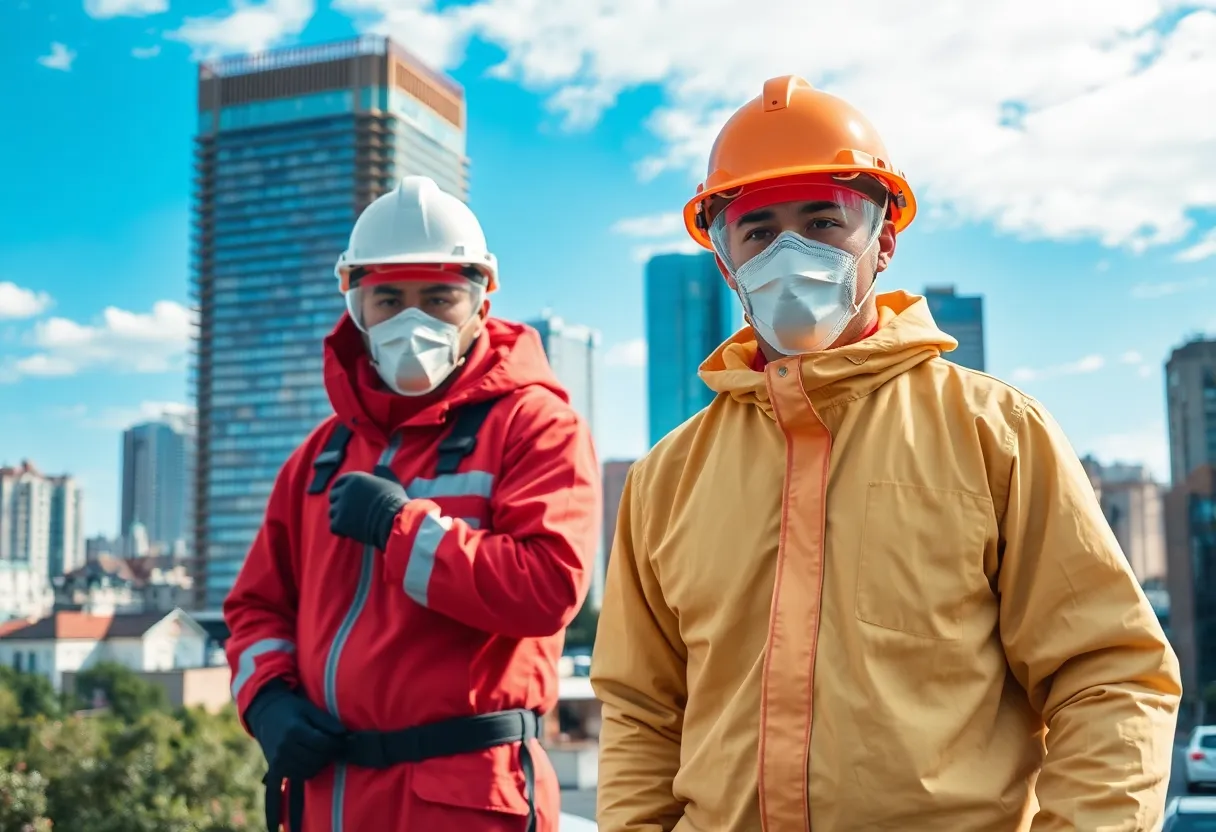News Summary
The Trump administration’s plan to allow chrysotile asbestos use has been officially abandoned, marking a pivotal moment in public health advocacy. The Biden administration reinforces its commitment to banning this hazardous material linked to serious health risks, including lung cancer and mesothelioma. The Environmental Protection Agency plans to uphold the ban amid legal challenges from industry groups, emphasizing worker safety and public health in a decades-long struggle against asbestos.
Asbestos Regulation: A New Chapter in the Fight Against Chrysotile Use
In a significant turn of events, the Trump administration has officially abandoned its plans to allow the continued use of chrysotile asbestos in manufacturing across the United States. This decision comes on the heels of substantial pressure from public health advocates and opponents of asbestos, who have long argued against its use due to the dire health consequences linked to the hazardous material.
Implications of the Decision
The Environmental Protection Agency (EPA) has indicated its commitment to defending the Biden administration’s ban on chrysotile asbestos in court. This material is commonly utilized in various products, including brake blocks and sheet gaskets, raising significant concerns over widespread exposure and its impact on public health.
Asbestos exposure has been linked to an alarming number of serious diseases, such as lung cancer, mesothelioma, ovarian cancer, and laryngeal cancer. With over 40,000 deaths attributed to asbestos exposure annually in the U.S., the stakes in the fight against this toxin couldn’t be higher.
The Biden Administration’s Comprehensive Ban
The Biden administration has set its sights on implementing a comprehensive ban on asbestos, aiming to put an end to a decades-long struggle against its usage. The EPA’s recent court filing confirms that it will not pursue any rewriting of the existing asbestos regulation and intends to uphold the ban rather than reconsider it.
In a notable development for worker safety, Lynn Ann Dekleva from the EPA announced the agency’s plans to enhance protections for workers exposed to chrysotile asbestos, particularly in the context of replacing asbestos gaskets.
Concerns and Legal Challenges
Despite the progress made, the Biden administration’s regulatory approach hasn’t been without its critics. Concerns have been raised that the regulations may not sufficiently safeguard chemical industry workers from the risks posed by chrysotile asbestos. Industry associations have taken legal action against the administration’s ban, insisting that some prior evaluations of the risks associated with chrysotile asbestos may have gone too far.
In contrast, public health advocates contend that any delay or modification of the ban could be detrimental to public health protections. The Asbestos Disease Awareness Organization, a prominent group dedicated to combating asbestos-related diseases, also expressed opposition to reconsidering the ban.
A Closer Look at the Asbestos Situation
Historically, asbestos use in the U.S. has persisted since the 1930s, with significant applications in schools and commercial building materials. Advocates voice their concerns that while chrysotile asbestos has been effectively banned under the Toxic Substances Control Act since its expansion in 2016, this ban currently permits manufacturers a staggering 12 years to phase out the material.
Critics have vehemently labeled the previous administration’s intentions to roll back the asbestos ban as harmful to public health, highlighting a broader tension that exists between advocacy for public health and powerful industry lobbying in environmental policy.
As the Biden administration takes steps to reaffirm its commitment against chrysotile asbestos, the fight continues to ensure the protection of workers and citizens alike from the health risks associated with this dangerous material.
Conclusion
With this latest turnaround, the U.S. takes another step toward prioritizing public health over industrial interests. The future of asbestos regulation remains intertwined with ongoing battles in the courts, and the unfolding narrative underscores the critical importance of diligent oversight in protecting the health of the population from the pervasive legacy of this toxic material.
Deeper Dive: News & Info About This Topic
HERE Resources
Blue Lights Illuminate Action Mesothelioma Day at Acorn Analytical Services
Frank Krohmer Takes Action Against Corporations in Mesothelioma Case
The Asbestos Bonfire Dilemma: Tensions Rise in South Belfast
The Future of Asbestos Regulation: A New Chapter Unfolds
Concerns Over Asbestos at South Belfast Bonfire Site
Concerns Over Belfast Bonfire Next to Asbestos Dump
Chrysotile Asbestos Ban Faces Legal Hurdles in the U.S.
Asbestos Companies Challenge Trust Fund Administration Amid Growing Concerns
Scandal Unfolds Over Asbestos Waste Disposal from Wildfires
Veterans in Erie County and Pennsylvania Face Mesothelioma Threat



















